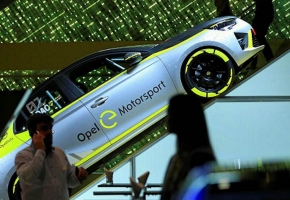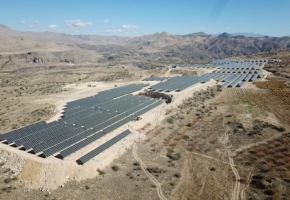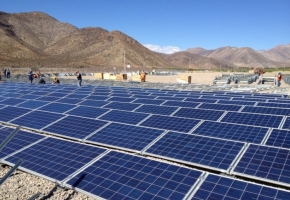Net-Zero iPhones: Apple Pledges to Go Carbon-Neutral by 2030

Apple is working to connect its global supply chain to local sources of renewable power. (Image: Apple)
The decarbonization plan covers Apple’s vast global supply chain, opening up a huge opportunity for renewable energy suppliers.
Apple committed to becoming carbon-neutral by 2030, pushing its ambitions far beyond its own corporate walls — already 100 percent powered by renewables — to include its vast supply chain and the lifecycle of all its products.
If it succeeds, then by the end of this decade every Apple device sold worldwide will have a net-zero climate impact, from the mining of the materials used to make them, to the ships that bring them to global markets, to the electricity that powers their use.
Perhaps the biggest challenge for Apple will be decarbonizing its immense supply chain, particularly the manufacturers of its products, which account for 76 percent of its carbon footprint. Roughly half of Apple's total emissions come from the electricity used to make its iPhones, iPads, Macs and other products. That creates an enormous opportunity for renewable energy.
Since 2018, Apple has powered its own facilities and operations entirely with renewables. Typically, Apple signs contracts (including virtual power-purchase agreements) with renewables developers like Avangrid and sPower, although it occasionally buys projects outright or makes equity investments.
Transitioning Apple’s entire global supply chain to 100 percent renewable electricity by 2030 is a far more difficult task, but the company says it's making steady progress. Earlier this month microchip giant TSMC, a key Apple supplier, signed what may be the world’s largest corporate renewables deal, agreeing to buy 920 megawatts of offshore wind power from Ørsted in Taiwan.
So far, Apple says that 71 of its manufacturing partners in 17 countries have committed to 100 percent renewables for their Apple-related production, requiring 8 gigawatts of mostly wind and solar capacity. Apple says it will continue to look for ways to help connect its suppliers to renewables projects, particularly in markets where deal structures and regulatory requirements are complex.
Manufacturers choosing to embrace renewables are building a “powerful new competitive advantage that will set them apart in the years ahead,” said Lisa Jackson, Apple’s vice president for environment, policy and social initiatives. “And those who are holding out should know that the clock is ticking,” Jackson wrote in the company’s 2020 Environmental Progress Report.
Source: www.greentechmedia.com







